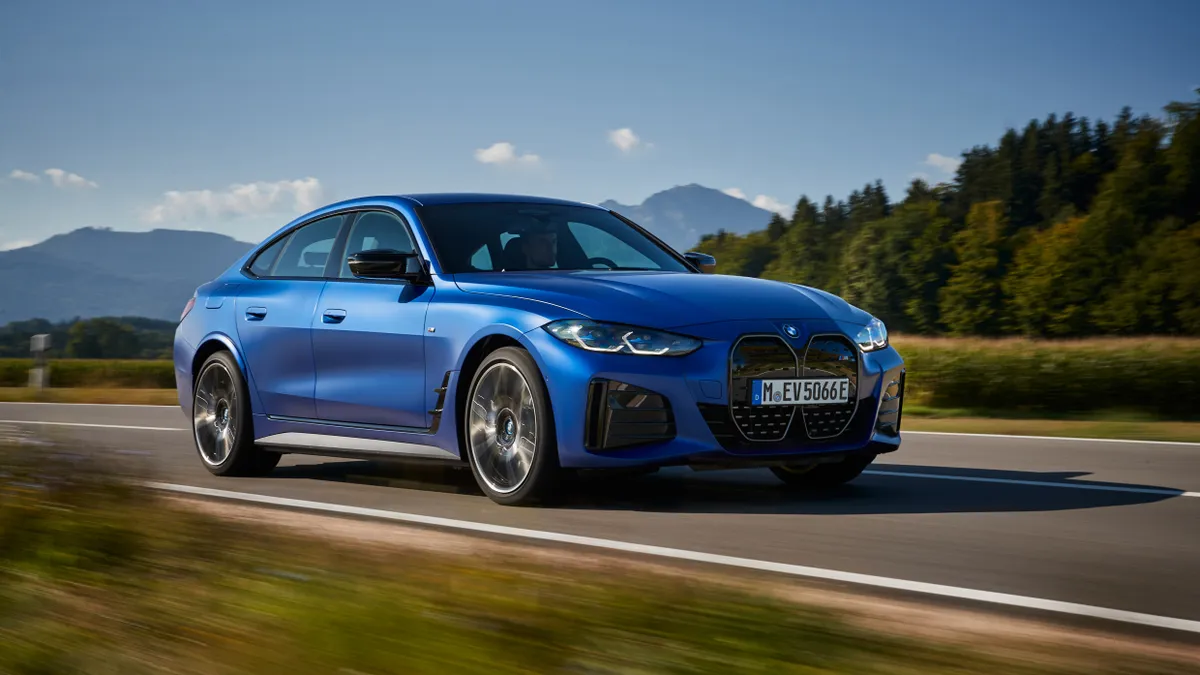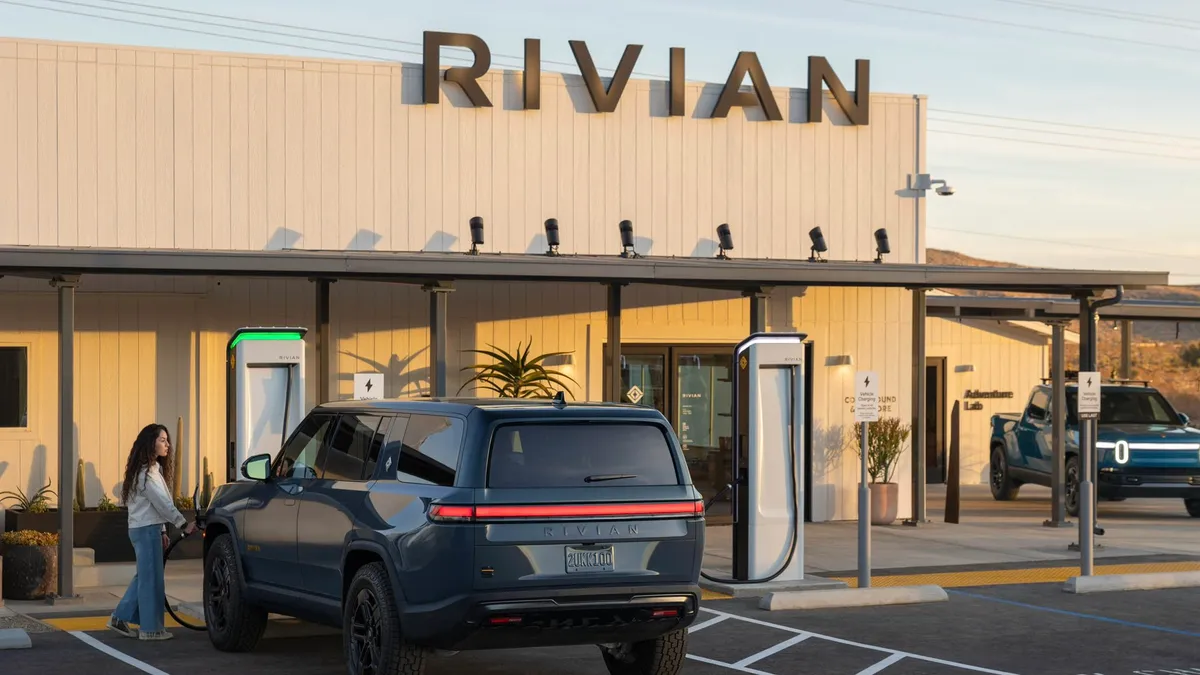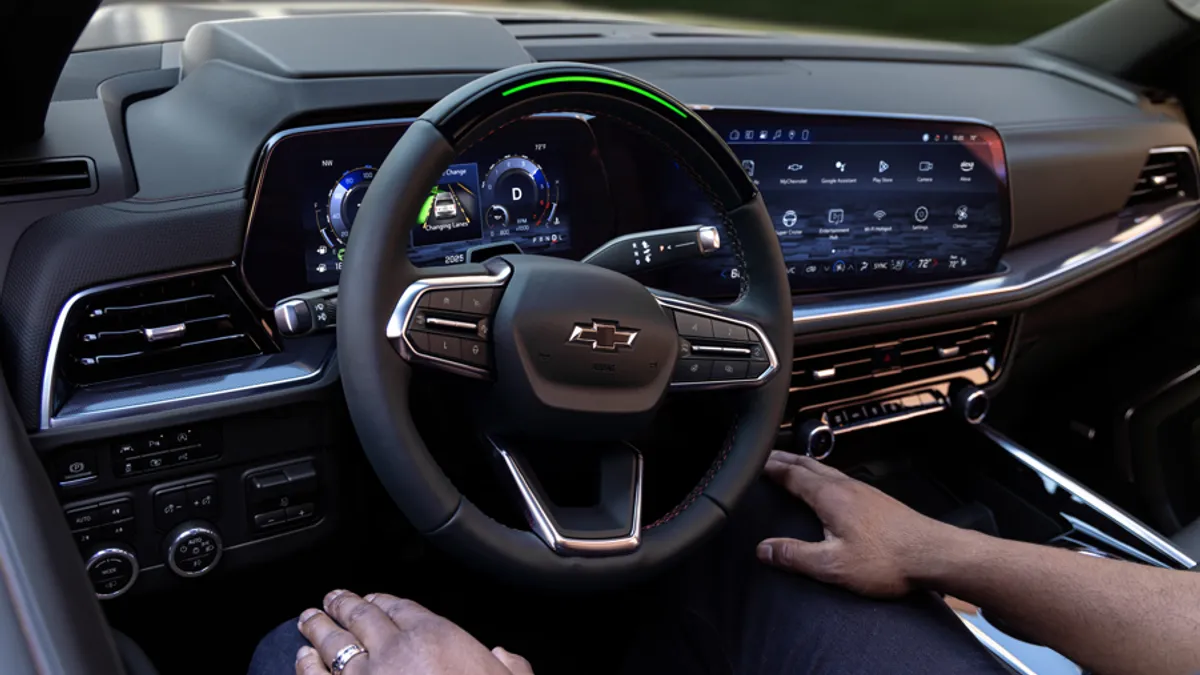Dive Brief:
- BMW Group sold 93,931 electric vehicles worldwide in the third quarter, a 79.6% year-over-year increase, the company said Tuesday.
- Similarly, Mercedes-Benz Cars, which excludes the automaker’s van business, sold 61,600 EVs globally in Q3, a 66% YoY increase.
- BMW expects battery-electric vehicles to account for 15% of its in 2023, while hybrids and EVs made up 20% of Mercedes-Benz sales in Q3.
Dive Insight:
The EV adoption rate continues to increase in the U.S., making up 8.6% of new vehicle sales, J.D. Power said last month. As a result, global automakers like BMW and Mercedes-Benz have experienced significant EV sales growth in the U.S. as the automakers launch new electric models and Tesla’s dominant market share declines.
The BMW brand’s BEV deliveries doubled from the same period last year to 83,211 units, driven by sales of its BMW i4 sedan and iX1 SUV. The company delivered 217,138 fully electric vehicles to customers in the first nine months of the year.
“Our fully-electric products, in particular, are benefiting from high demand worldwide — as seen in our BEV sales, which significantly outperformed the total BEV market in the first nine months,” Pieter Nota, a member of BMW AG’s management board, said in a press release.
BMW also says its new fully electric BMW i5 sedan has received positive customer feedback. The i5 starts at $66,800 in the U.S., making its price competitive with Tesla’s Model S sedan, which starts at $74,990.
In Q3, Mercedes-Benz increased its BEV sales in the U.S. by 137% to 10,000 units. So far this year, the automaker has sold 33,800 BEVs, a 315% YoY increase.
Mercedes-Benz attributes its triple-digit EV sales growth in the U.S. to higher demand for its EQ family of EVs. The automaker’s EQE and EQS SUVs accounted for almost half of Mercedes-Benz’s global BEV sales through Sept. 30.
As EV sales rise in the U.S., BMW and Mercedes-Benz are investing heavily to build more EVs locally.
In October 2022, BMW Group Chairman Oliver Zipse said the company would invest $1.7 billion in U.S. manufacturing to increase EV production, including $1 billion to retool its plant in Spartanburg, South Carolina. BMW will spend an additional $700 million to build a battery assembly plant nearby. Construction of the battery plant began in June.
Mercedes-Benz currently assembles the electric EQS SUV at its plant in Tuscaloosa, Alabama. The factory will also produce the electric EQE SUV.
In July, Mercedes-Benz and BMW teamed up with General Motors, Honda, Hyundai, Kia and Stellantis to create a new joint venture to install at least 30,000 high-powered EV chargers along major highways and in urban locations in North America.
As BMW, Mercedes-Benz and others launch EVs in the U.S., Tesla’s market share is declining. According to a September report from Cox Automotive, Tesla’s market share has fallen 8 points from 2022 to 2023. During the same period, BMW and Mercedes-Benz increased their EV market share in the U.S. by 3% and 2%, respectively.














